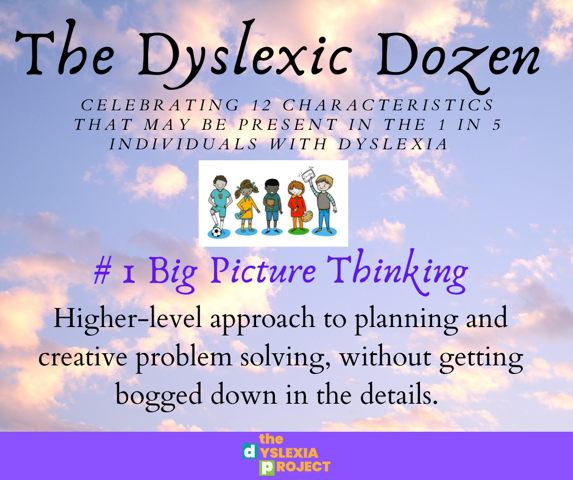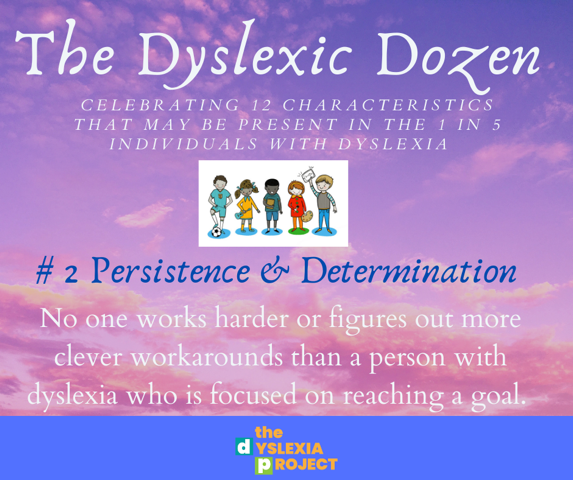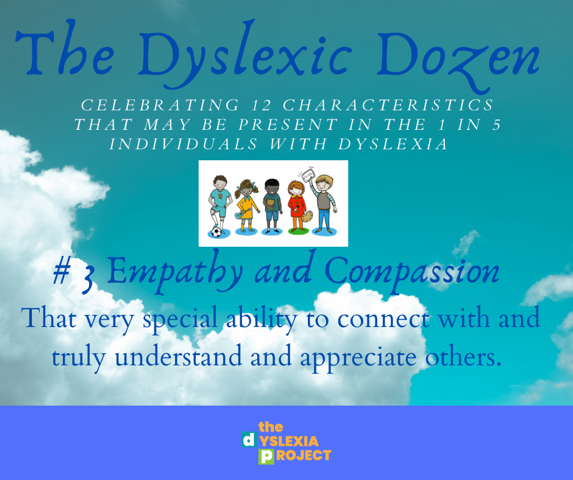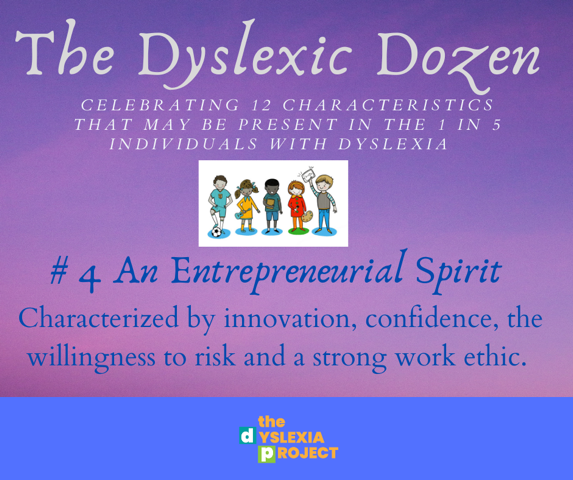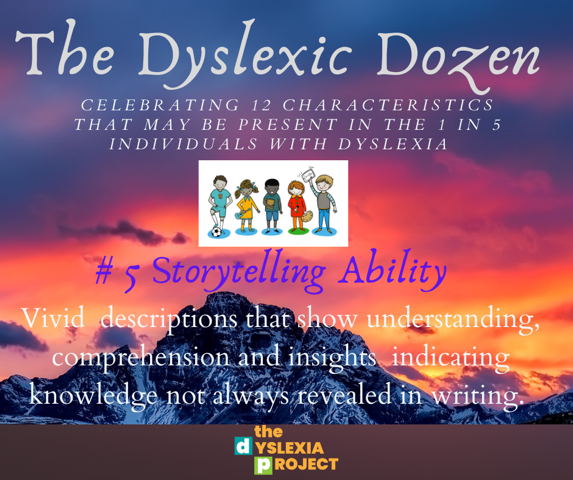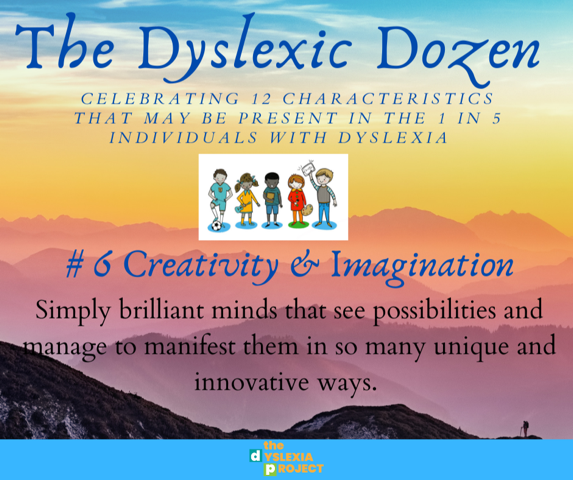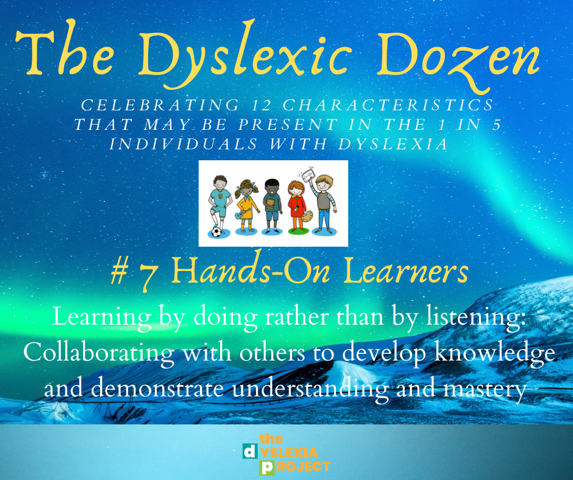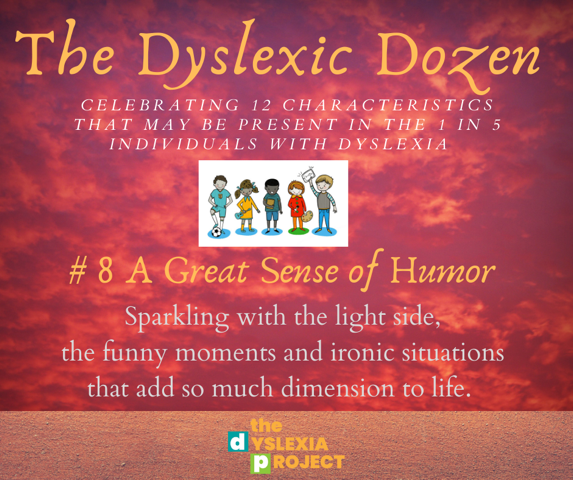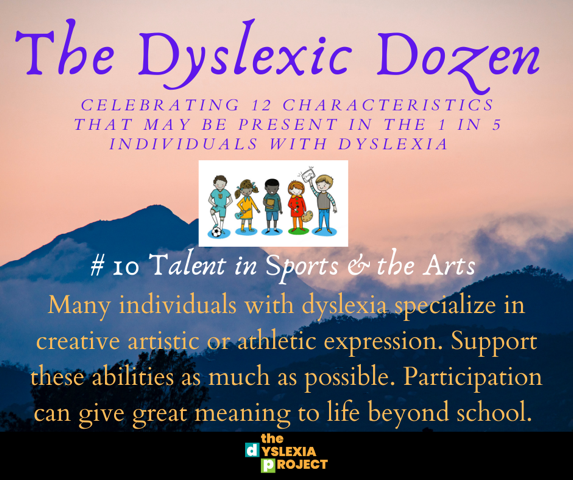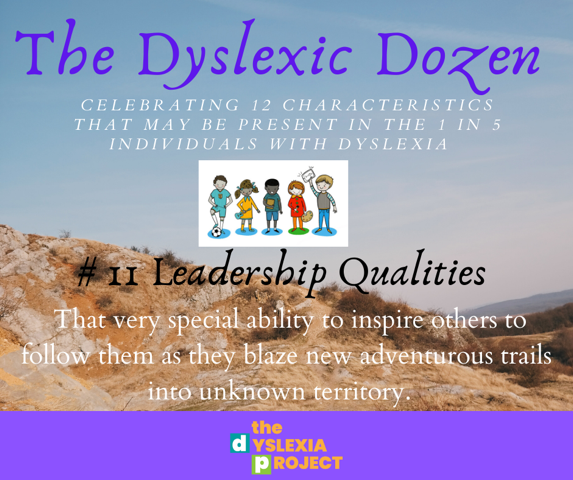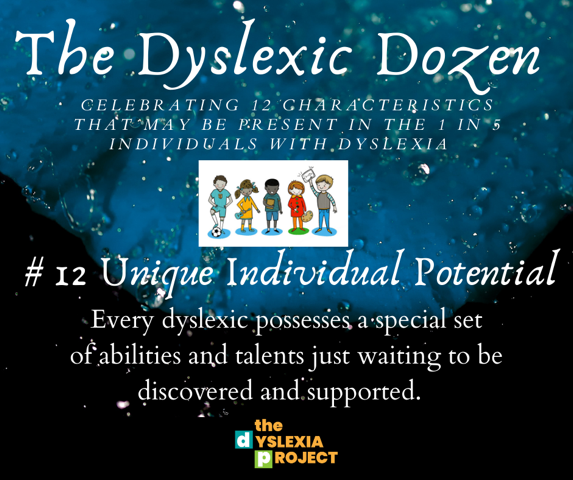







For many years, The Dyslexia Project has worked in the community to increase awareness about dyslexia every single day. But October, as Dyslexia Awareness Month, offers a special opportunity to focus attention on the issue, and we do our best to provide our expertise to the community.
The County Board of Supervisors
In 2014, we began a long and beneficial partnership with the Santa Barbara County Board of Supervisor to recognize the official month and to honor individuals who are dedicated to improving the lives of the 1 in 5 with dyslexia.
The first year, Santa Barbara Unified School District’s superintendent, Dr. David Cash, was recognized as an administrator who took a special interest in dyslexia. He initiated the creation of the Parent Resource Center at the district office, and was very supportive of efforts in the classrooms and the community to create greater awareness. In his remarks, he stated that acknowledgement of his efforts was one of the most significant awards he received in his career.
Additional recipients pictured here with Supervisor Das Williams include: Deidre and Barry Dubin, who operated the Dubin Learning Center, helping countless dyslexic students in more than two decades; Julie DeAngelis and Summer Calvert (of the Rite Care Childhood Language Center, Scottish Rite Masons, Santa Barbara; dyslexic Olympic gold medalist and advocate Kami Craig; learning specialist with Santa Barbara Middle School, Pam Boswell; and The Dyslexia Project’s own dyslexic photographer and determined advocate Monie de Wit. As Boswell noted, “I want all students to not feel limited by one’s learning style and to know that we can all pursue any passion or dream that we may have.”
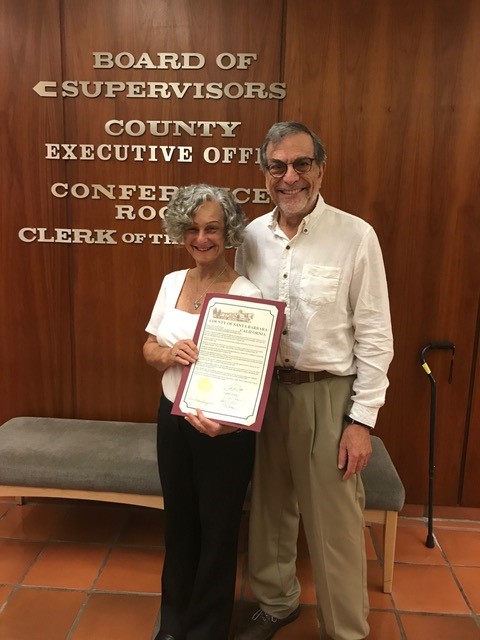
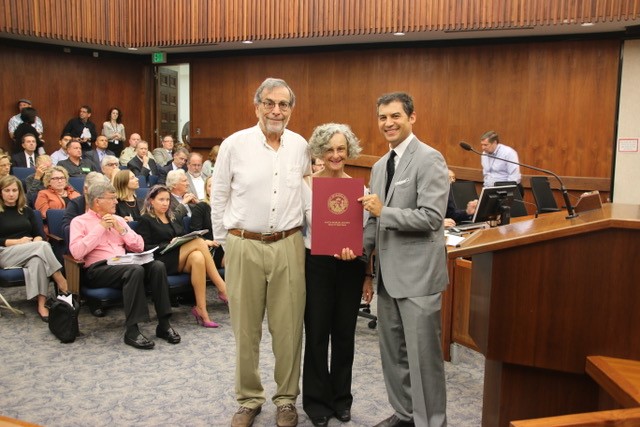
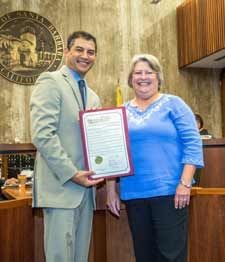
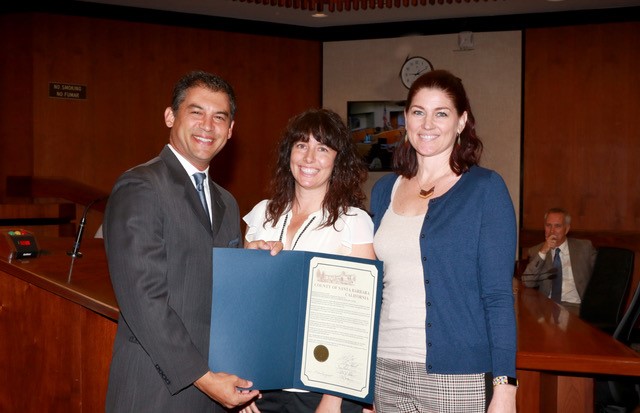
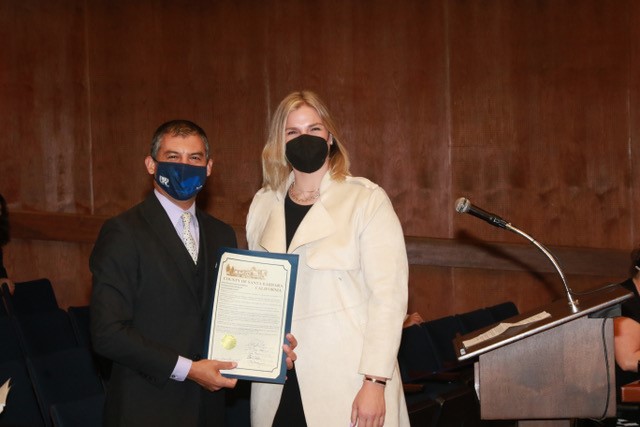
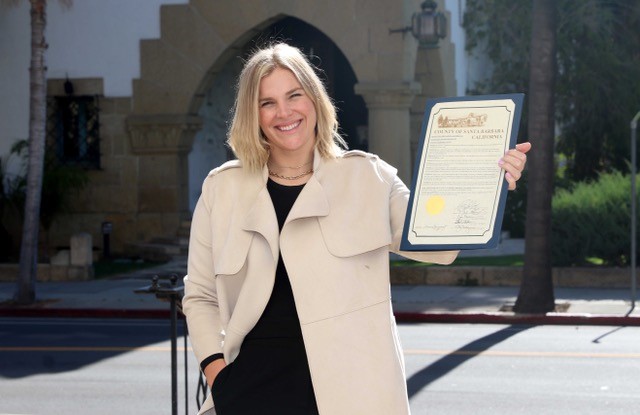
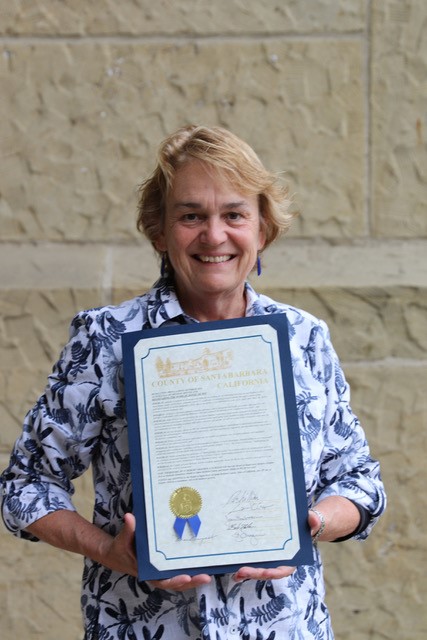
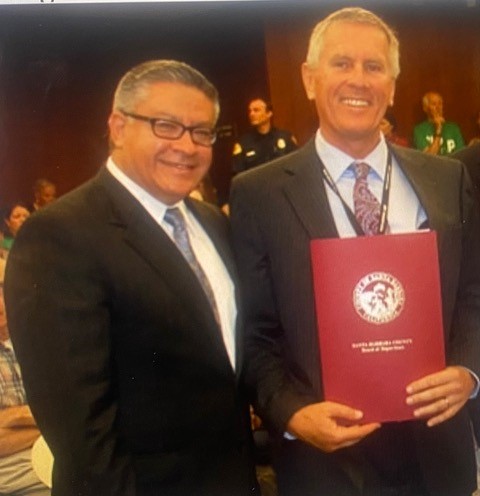

We have also received Proclamations from the City and the State for our efforts and arranged displays in local libraries, bookshops, and other public places. The value of these public exhibits is to pause a moment in civic life to recognize dyslexia in front of an audience that might not otherwise know much about it. We are grateful to have this annual opportunity to speak about dyslexia in a positive way and to recognize the efforts of so many in our community who work on behalf of dyslexics.


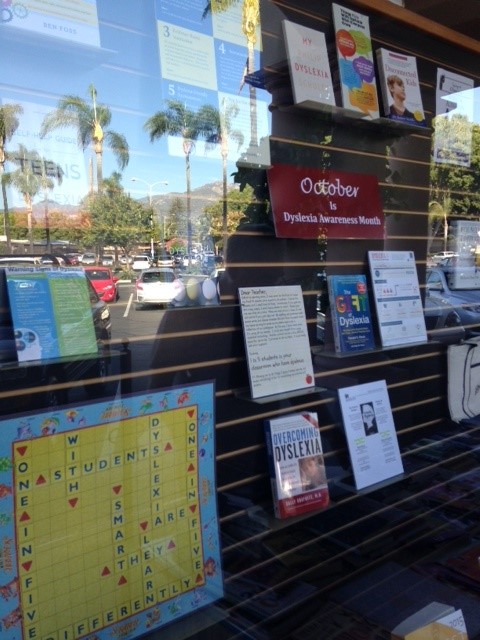

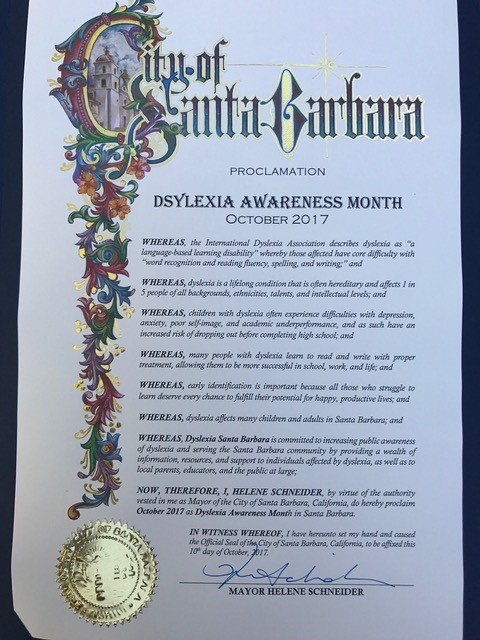
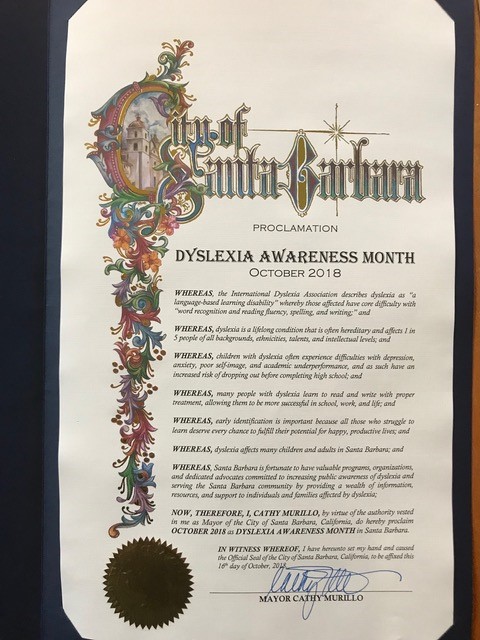
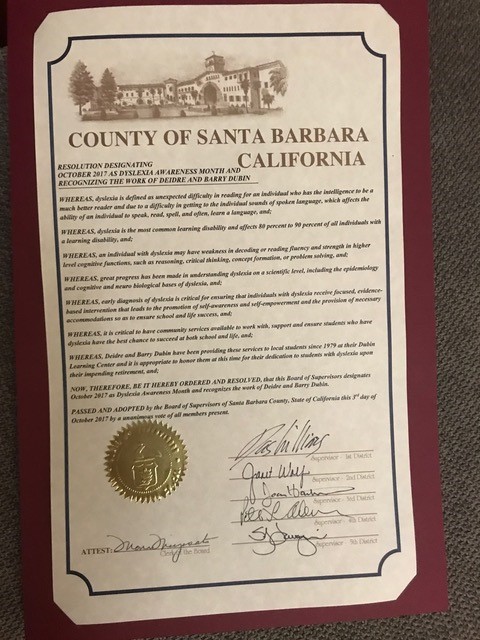
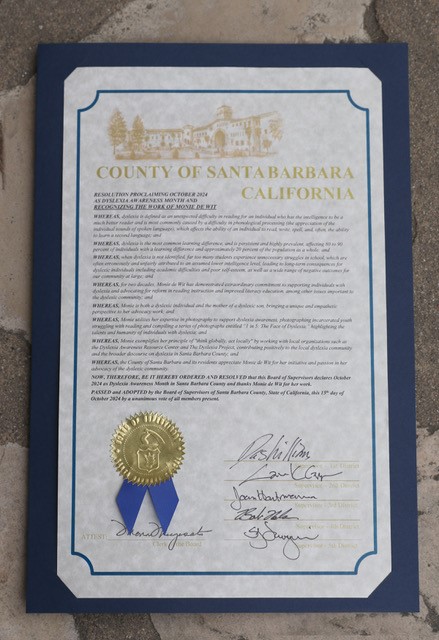
This series of graphics was originally inspired by those inspired by the song, “The Twelve Days of Christmas.” Instead of a holiday theme, we re-created it to have year-round value and a reminder to celebrate the strengths that are often—but not always—a part of dyslexia, too often unrecognized.
